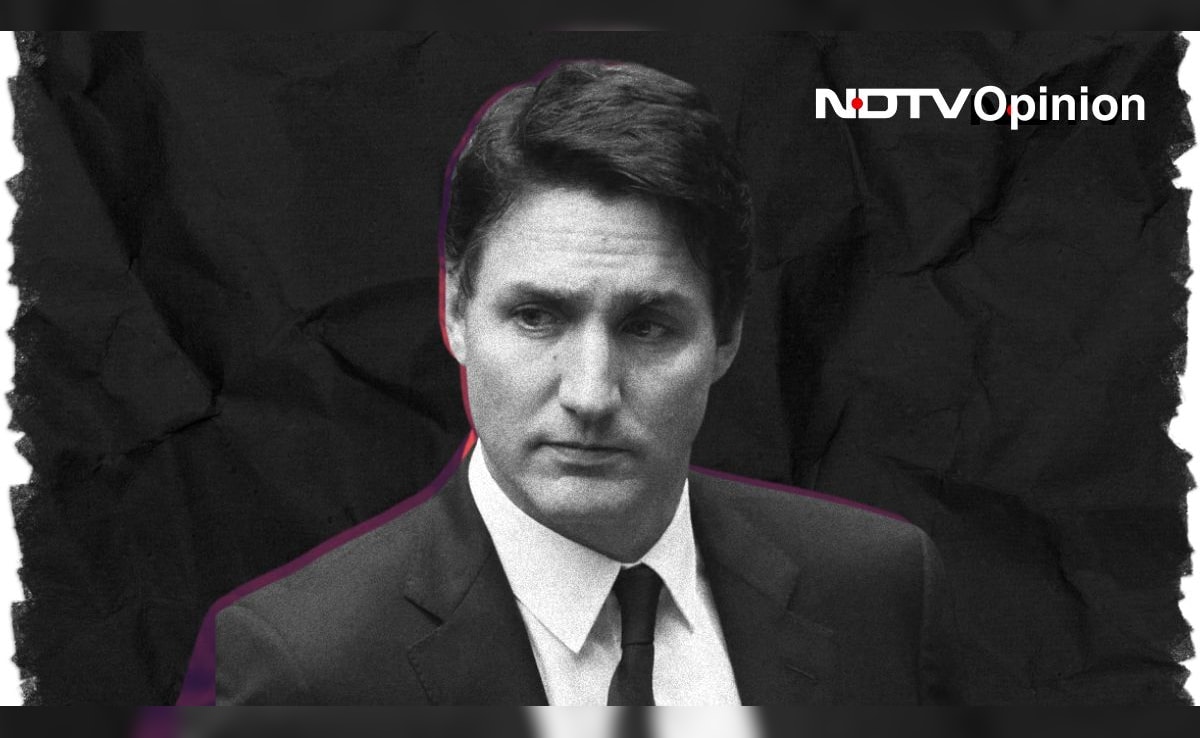2025-01-08 11:59:00

Finally, Justin Trudeau decided that he will have to quit to save himself any further ignominy. His politics and his career have been adrift for a while now with no seeming way out of the morass he was sinking into with each passing day. It must have seemed to him that he was being abandoned not only by his own party, his nation but also by the wider world. For someone who had risen as the darling of global media just about a decade back, the fall from grace of being lampooned as the governor of the 51st state of America has been equally scathing.
So, when Trudeau announced that he was resigning and that he would stay on in office until his Liberal Party can choose a new leader, and that parliament would be prorogued until March 24, it was hardly greeted with a shrug.
How Trudeau Scripted His Own Downfall
Yet, most of the problems facing Trudeau are of his own making. When deputy prime minister and long-time ally Chrystia Freeland abruptly resigned in December, accusing Trudeau of not doing enough to address the “grave challenge” posed by Trump’s proposal to impose a tax of 25% on imported Canadian goods, it was the last straw, as it led to the withdrawal of support of parties like the New Democrats and the Quebec nationalist party, Bloc Quebecois, which had kept the Liberals in power. The Conservatives as the main opposition had been gaining ground over the last few years, with Trudeau himself being increasingly viewed as a drag on the political fortunes of the Liberals.
In her resignation letter, Freeland strongly criticised Trudeau’s “political gimmicks”, likely referring to a two-month sales tax holiday and C$250 rebates for most workers, underscoring the fundamental problem with Trudeau’s brand of leadership. For a leader who had come to power in 2015 promising “Sunny Ways” for his nation, all he could offer in the end was political gimmickry.
The economic situation post-Covid has been debilitating for most Canadians and his management of Covid left a large majority unimpressed. As unemployment skyrocketed and the cost of living crisis gained ground, Canadians’ faith in Trudeau’s abilities kept dwindling. His popularity plummeted and backbenchers began to desert him, fearing for their own political future.
On the foreign policy front, Trump’s election victory came as a huge setback. Trump has claimed that his pressure over tariffs led to Trudeau’s resignation; he also took a jibe at Canada’s situation, saying that it should become “the 51st State” of the US. “If Canada merged with the US, there would be no Tariffs, taxes would go way down, and they would be TOTALLY SECURE from the threat of the Russian and Chinese Ships that are constantly surrounding them,” he said on Truth Social, rubbing salt in Trudeau’s wounds.
A Lost Decade For India-Canada
Of course, when it comes to India, Trudeau was an unmitigated disaster. Canada, under his leadership, has managed to achieve the unthinkable: become the ‘new Pakistan’ in the Indian foreign policy matrix. Trudeau’s contribution to the fiasco that is the current India-Canada ties can’t be overestimated. The two nations had almost succeeded in moving beyond the Kanishka bombings, the nuclear challenge, and the wider Cold War strategic divergence. In particular, under Stephen Harper, Prime Minister from 2006 to 2015, the shift in tone and tenor, as well as substance of engagement, became pronounced.
Under Trudeau’s leadership, on the other hand, the decline was swift. His courting of Khalistani extremists to strengthen his domestic position clouded his ability to view India-Canada relations with the seriousness they deserved. By focusing on India as a target, he sought to rally his party’s base in a last-ditch effort. When Trudeau claimed last September that Canadian security agencies had credible evidence linking Indian government officials to the killing of Hardeep Singh Nijjar, few in India took his assertions seriously. After all, it was his own government that had repeatedly refused to extradite Nijjar and other extremists despite India’s persistent requests, while simultaneously turning a blind eye to the hateful, violent rhetoric of pro-Khalistan groups.
Good Riddance?
Self-righteous posturing by Trudeau and his party has been aimed at courting a key electoral demographic. Yet, his unwillingness to understand Indian concerns and lack of sensitivity about Sikh separatism have done some serious damage to the very fabric of India-Canada ties. Trudeau’s departure was needed for an India-Canada reset as the strategic partnership that was put in place in 2015 now lies in shambles. His successors will have to work hard to ensure that this reset happens quickly in order to make up for the lost decade under Trudeau.
(Harsh V Pant is Vice President for Studies at Observer Research Foundation, New Delhi.)
Disclaimer: These are the personal opinions of the author
Justin Trudeau,Canada,nijjar,khalistan,sikh,separatism,trudeau,trump,united states,america
Source link
5 total views , 1 views today
